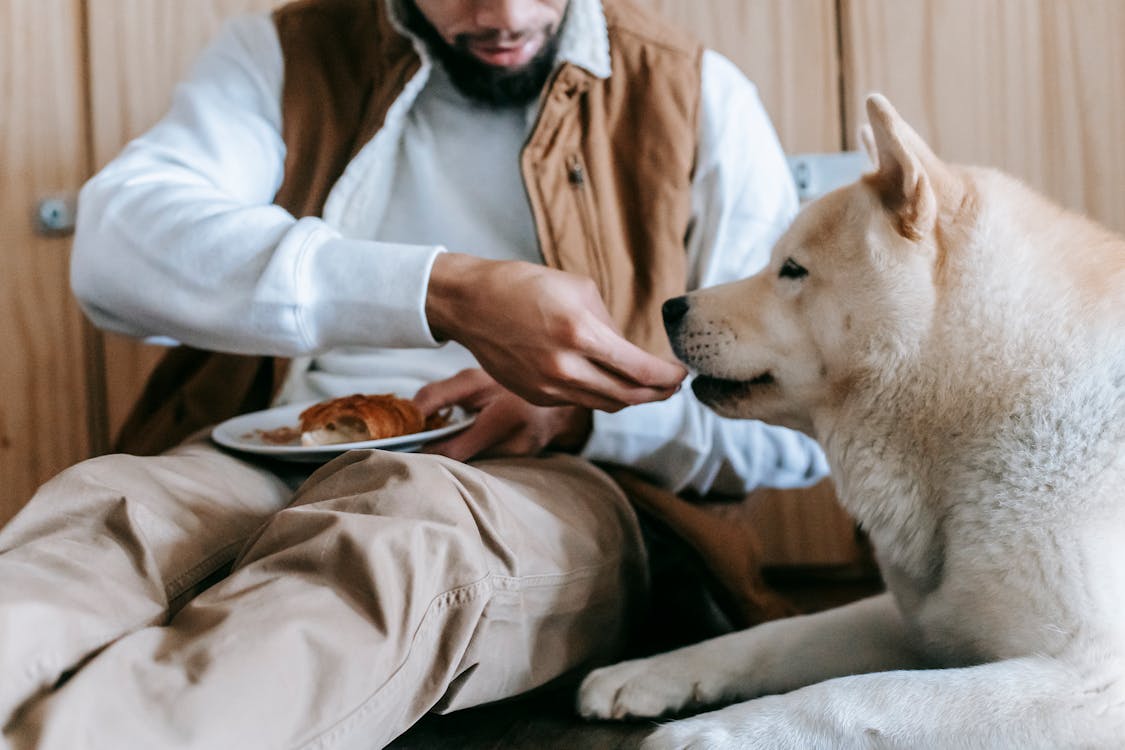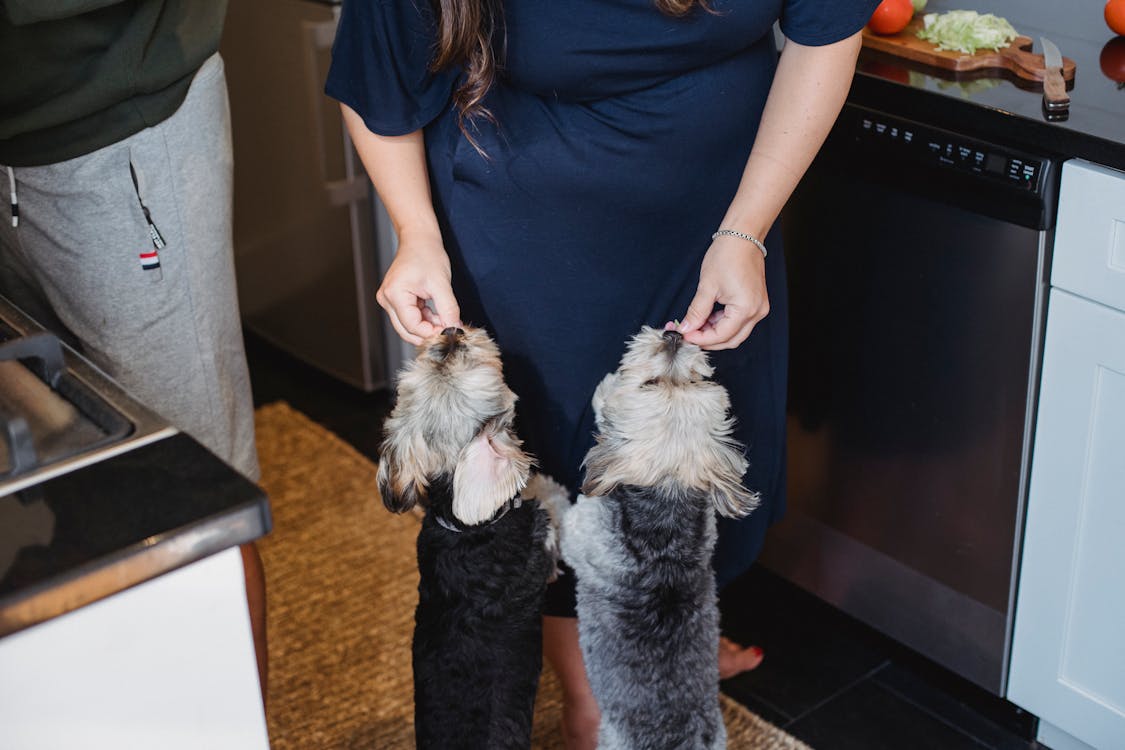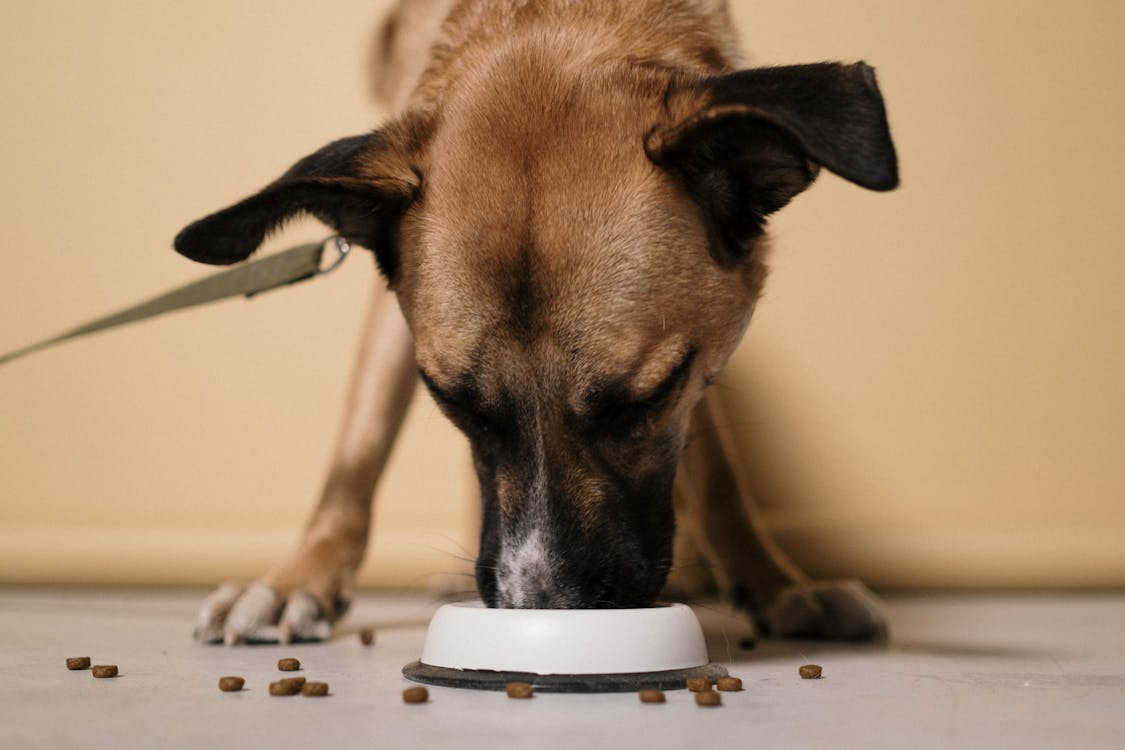Dogs are not immune to feeling anxious, just like humans. Anxiety in dogs can manifest in many different ways, such as destructive behavior, panting, trembling, and aggression. To help keep your pup calm, it’s important to make sure they are getting the right nutrition. Here are 10 nutrients that have been shown to help alleviate anxiety in dogs. These include fatty acids, B-vitamins, magnesium, zinc, and more. By incorporating these nutrients into your pup’s diet, you can help reduce their stress levels and keep them happy and healthy.
1) omega-3 fatty acids

Omega-3 fatty acids are essential for your dog’s overall health and can help reduce anxiety. These healthy fats can be found in fish oils and other natural sources such as flaxseeds. Incorporating omega-3 fatty acids into your dog’s diet can improve their brain function and mood, ultimately helping to ease their anxiety levels.
2) magnesium
Magnesium is an important mineral that can help ease anxiety in dogs. It is involved in regulating the nervous system, which can have a calming effect on your pup. A magnesium deficiency may lead to restlessness, hyperactivity, and even aggression in dogs. To boost your dog’s magnesium intake, consider feeding them foods like spinach, pumpkin seeds, almonds, and bananas. Alternatively, you can ask your veterinarian about magnesium supplements for your furry friend.
3) probiotics

Probiotics are live microorganisms that promote good gut health and aid digestion. They can also have a positive impact on your dog’s mental wellbeing by reducing anxiety and improving mood. A study conducted on anxious dogs showed that probiotic supplements led to a significant reduction in anxiety-related behaviors. Consider incorporating probiotics into your dog’s diet through supplements or probiotic-rich foods like yogurt and kefir.
4) chamomile
Chamomile is a natural herb that can help calm your dog’s anxiety. Its relaxing properties make it an excellent option for dogs that are prone to nervousness or anxiety during car rides or trips to the vet. You can brew chamomile tea and add it to your dog’s water bowl or give them a few drops of chamomile oil on their bed. However, make sure to consult with your vet before giving your dog any new herbs or supplements.
5) L-theanine

L-theanine is an amino acid commonly found in green tea leaves. It has been shown to have calming effects on the brain and can help reduce anxiety in dogs. L-theanine can be found in supplement form or in some calming dog treats. Consult with your veterinarian before adding any supplements to your dog’s diet.
6) tryptophan
Tryptophan is an essential amino acid that helps to regulate serotonin levels in the brain, which can help improve mood and reduce anxiety in dogs. This nutrient can be found in high-protein foods like chicken, turkey, and fish, as well as in supplements and dog foods fortified with tryptophan. Adding a little extra tryptophan to your dog’s diet may help alleviate their anxiety and promote a sense of calm.
7) vitamin B6

Vitamin B6 is important for proper brain function and can help regulate anxiety levels in dogs. This vitamin helps to produce serotonin, which is a neurotransmitter that plays a role in mood regulation. Foods high in vitamin B6 include poultry, fish, and bananas. Consult with your veterinarian before adding any supplements to your dog’s diet.
8) vitamin C
Vitamin C is an antioxidant that can help reduce stress levels in dogs. It also supports the immune system and can help improve overall health. However, dogs naturally produce vitamin C, so supplements may not always be necessary. It’s important to consult with your veterinarian before adding any supplements to your dog’s diet.
9) ginger

Ginger is known for its anti-inflammatory properties and can help alleviate nausea and vomiting, making it a great nutrient to have on hand during times of stress or anxiety in your dog. Adding a small amount of fresh ginger to their meals or offering ginger treats can provide a soothing effect for your pup.
10) lavender
Lavender is a natural remedy that has been used for centuries to treat anxiety and stress in humans. It is no surprise that it can also have a calming effect on dogs. The scent of lavender has been found to help reduce stress levels and promote relaxation. One study found that dogs exposed to lavender scent showed reduced signs of anxiety and increased relaxation compared to dogs that were not exposed to the scent.
There are a few different ways to use lavender to help your dog with anxiety. One option is to use lavender essential oil. You can add a few drops to a diffuser or mix it with a carrier oil (such as coconut oil) and rub it on your dog’s neck or chest. However, it is important to use caution when using essential oils with dogs and always dilute the oil before use.
Another option is to use a lavender-filled toy or pillow for your dog to sleep with. This can provide a soothing scent throughout the night and help your dog feel more calm and relaxed.
While lavender can be a helpful tool in reducing anxiety, it is important to note that it is not a cure-all. If your dog is experiencing severe anxiety, it is best to consult with a veterinarian to discuss other treatment options. Additionally, always make sure that any lavender products you use are safe for your specific dog and are not causing any adverse reactions.


